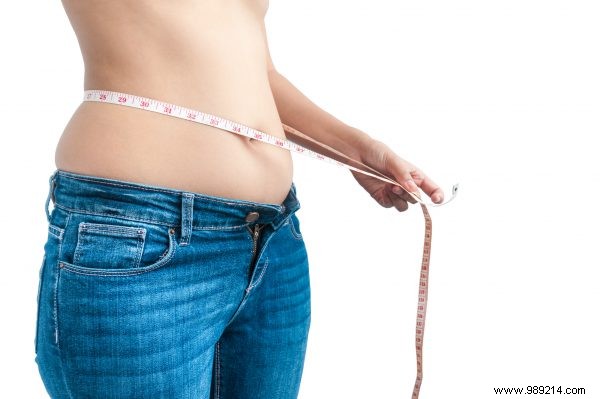
Very frustrating:you live healthy but you do not lose weight! How come? Santé asked internist Dr. Mariette Boon.
dr. Mariëtte Boon:“First, ask yourself whether you really live as healthy as you think. That is often overestimated. For example, squeezed fruit juice may seem healthy, but it is a source of sugar. It is best to eat according to the Wheel of Five, and stay away from packages and bags. Research shows that processed food has a major impact on our weight, partly because it is less satiating. Getting enough exercise is also important. The majority of the Dutch do this too little:you cannot compensate for a lot of sitting still with an hour of sports a week. Take as many short walks as possible in between.”
Read also: 'A flat stomach when you're 30, 40, 50'
“Unbeknownst to you, the fact that you are not losing weight can have several causes. For example, your weight is determined for about sixty percent by your genes. These regulate, among other things, how quickly you become full and how easily you get energy from food. Your hormones can also put a brake on weight loss, for example if you have an underactive thyroid or are in the menopause. The fact that you do not lose weight may also have to do with your night's sleep. When you don't sleep well, your hunger hormones rise and your satiety hormones fall. That makes you feel like eating unhealthy food.”
“Medications can also affect your weight. Half of all overweight people use drugs with a fattening side effect, such as prednisone, antidepressants, blood pressure lowers or insulin. Insulin is especially a big culprit, because it makes you retain a lot of fat. Even if you do your best, losing weight is a lot more difficult. If you would like that anyway, it is best to discuss with your doctor whether your medication can be phased out.
In short:there are plenty of medical reasons that prevent you from losing weight (anymore), but you also have to be lucky with your genes. By teaching yourself tricks, you can sometimes influence that. Are you not easily satiated? Drink a glass of cold water before eating or chew more slowly. It takes an average of twenty minutes for your satiety hormones to do their job.”
dr. Mariëtte Boon (30) is an internist in training at the Leiden University Medical Center. In 2014 she obtained her doctorate cum laude for her research into brown fat. Together with internist-endocrinologist Prof. Liesbeth van Rossum she wrote the book Fat important
(€ 20.99 Ambo|Anthos), full of facts and fables about body fat.